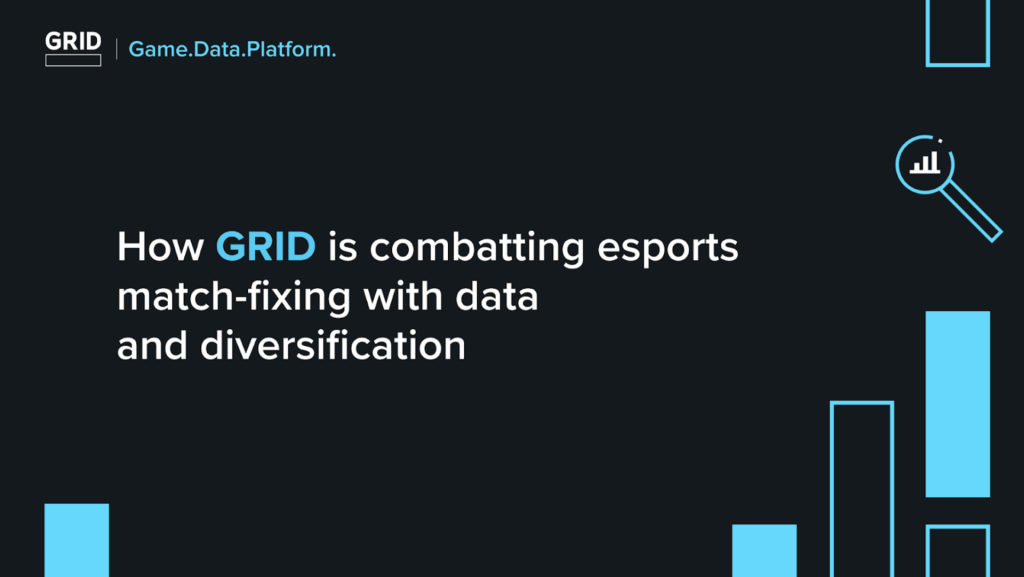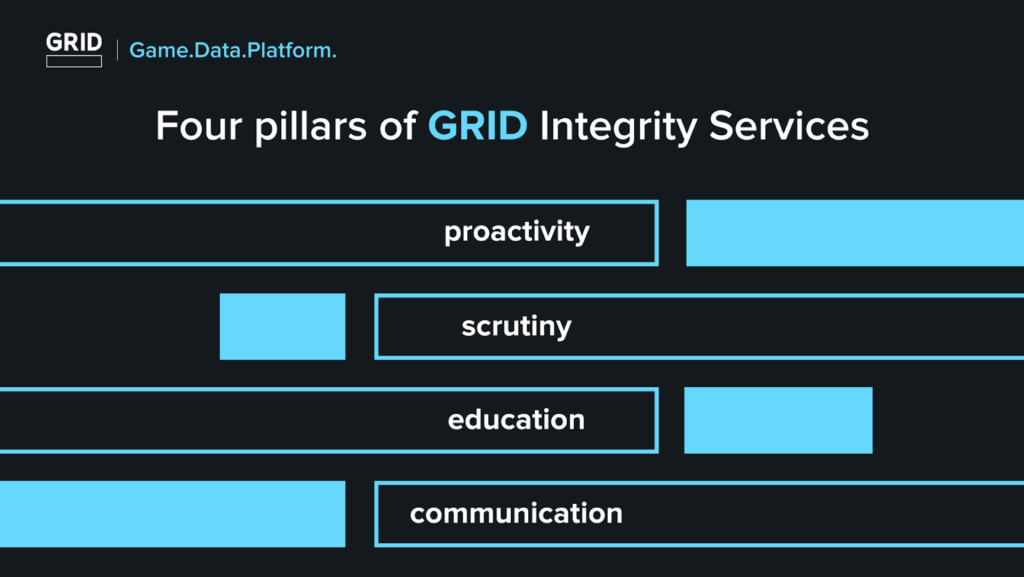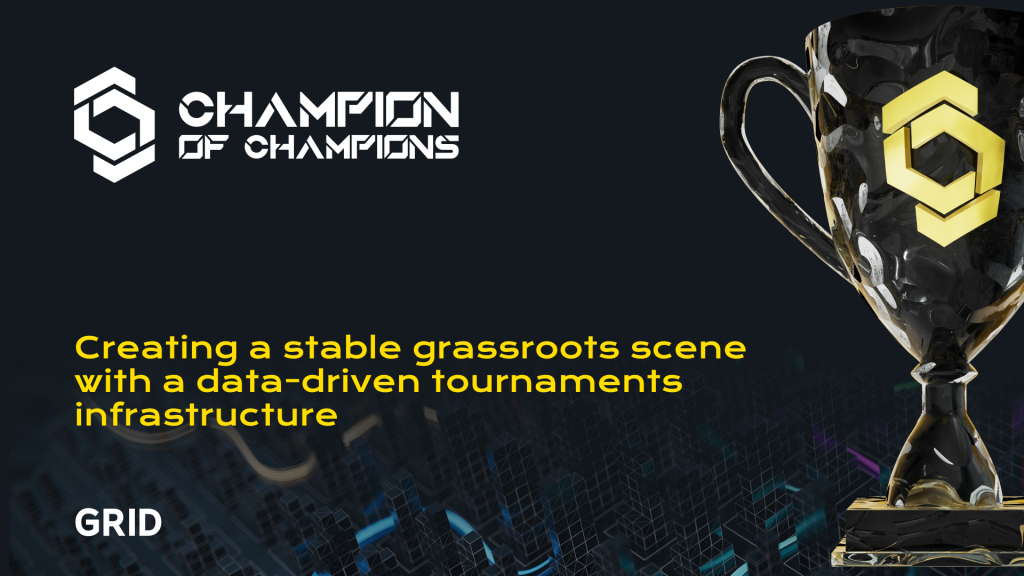[ad_1]
JingJie Luo, the Integrity Lead for game data platform GRID, writes for Esports Insider to discuss how the company is utilising its solutions to combat esports match-fixing.

Data in esports and traditional sports differ in many ways, however, there is one issue that both are constantly facing: match-fixing.
Whether it’s in football, tennis or leading esports titles, match-fixing has a pervasive, harmful influence on ecosystems. In emerging markets such as esports, it is also directly impacting tournament organisers, teams and players due to the scene’s digital nature. It casts a shadow over investment and sponsorship decisions in the industry, especially when it comes to amateur leagues.
Esports: The haven for match-fixers
The most common reason is money. Most match-fixing occurs within tier-two and tier-three scenes of a sport. From Under-20 leagues in football to regional leagues in Esports, this is where match-fixers thrive and make their money. Due to the esports ecosystem in its entirety being undeveloped, players within the scene often make little-to-no salary whilst playing multiple official matches and several scrims a week. All for the potential opportunity that one day they may be good enough to be picked up and join tier-one competitions.
Simply put, without a proper amateur ecosystem for players to pursue esports and earn a respectable wage, match-fixing will forever be present. There will be thousands of amateur players vulnerable to the promises of match-fixers, all for a few thousand dollars or a new peripheral set.
Discussing the current state of esports specifically, one of the main issues that cause match-fixing to occur is a lack of information. In particular, sharing information and having a reliable infrastructure to monitor situations that mainly affect tournament organisers and betting operators.
Due to a lack of network in place, communication between tournament organisers and betting operators is nearly impossible and can be achieved only through the involvement of an intermediary. This could be a game developer or a law-enforcement body, however, it then becomes just about controlling the damage instead of preventing it from happening in the first place.
How GRID looks to be proactive, not reactive
Like any other integrity service in regular sports, GRID’s integrity team utilises odds collection from multiple bookmakers, both regional and international, as an early-warning tool for esports integrity concerns. Working alongside tournament organisers and game developers— such as WePlay Esports, BLAST and Riot Games — as well as betting operators, GRID can identify matches with potential match-fixing occurrences. This is then notified so partners can investigate and take appropriate action.
GRID’s integrity team also maintains a large integrity database. By tracking the performance of CSGO rosters and players from an integrity standpoint, the company can assist against match-fixing by collecting these data points.
The database serves as a long-term project for GRID and provides further insights into match-fixing patterns, hopefully allowing the company to identify teams with integrity concerns.

Serving as a liaison within esports
As an official data provider, GRID and its integrity team serve as an intermediary. In short, it builds a bridge between two important stakeholders in esports integrity, the tournament organiser or publisher — the victim of match-fixing in the form of competitive integrity — and the bookmaker, a victim of match-fixing in the form of profits.
Integrity teams for data platforms help provide tournament organisers with the expertise and information needed. For GRID, its team investigates match-fixing from a betting standpoint, which when combined with proper gameplay analysis, can often give a more accurate conclusion towards a match. This prevents further false accusations and allows for a more robust anti-match-fixing effort.
These efforts serve to assist tournament organisers of all sizes by providing companies with a greater understanding of the processes behind match-fixing. All tournaments supported by the GRID Platform can also benefit from a broad integrity network of organisers, bookmakers and industry experts, sharing information and alerts as well as working collaboratively on investigations.
Creating a stable grassroots scene
The match-fixing issue is persisting across all tiers, however, it especially affects the amateur esports scene. The lack of salaries and the absence of a circuit with prize pools largely relate to the lack of infrastructure and security at lower tiers, which also results in hesitation toward investment from sponsors. GRID’s response to that is the Champion of Champions Tour (CCT).

The CCT is designed to support tier-two, tier-three and amateur levels of the CSGO esports ecosystem. Featuring a $3.4m prize pool, multiple tournaments across each region and partnerships with regional and national leagues, the CCT is GRID’s proposition to build a data-driven esports scene from the grassroots.
Utilising a data-backed approach together with a stable infrastructure should make the scene more attractive for organisations and sponsors. As a result, it allows for the further development of talent, stable salaries and business opportunities within tier-two, tier-three and amateur scenes. This has already been shown through brands like Parimatch or BitSkins getting involved in the CCT. Players will also hopefully have a consistent platform to improve and possibly be discovered by tier-one organisations.
From an integrity standpoint, GRID believes that the CCT has the potential to improve the amateur scene and reduce the number of players vulnerable to match-fixing due to the direct involvement of its integrity team.

Information sharing amongst stakeholders
For GRID’s partners, the integrity team encourages coordination and sharing of information from stakeholders involved, whether it be a tournament organiser or data consumer. This potentially could be used to develop better risk-assessment capabilities. Ultimately, partners can identify teams that are at risk of integrity issues or teams that have a history of integrity issues within the esports ecosystem.
These efforts serve to combat compromised betting markets that pop up, reducing the profits of match-fixers and cohorts. However, the biggest benefit here is that eventually, these measures will lead to a degradation of the match-fixing network, lowering the number of players that these match-fixers can use. Thus, significantly impacting match-fixing operations over time.
The endgame: A sustainable and thriving ecosystem for businesses and players
The simple fact is, match-fixing will always be an issue. No matter the measures, there will always be a roster or player that will be vulnerable to match-fixing.
However, proactively taking action and preparing the right procedures in advance can help the scene continue to move towards a sustainable ecosystem.
[ad_2]




